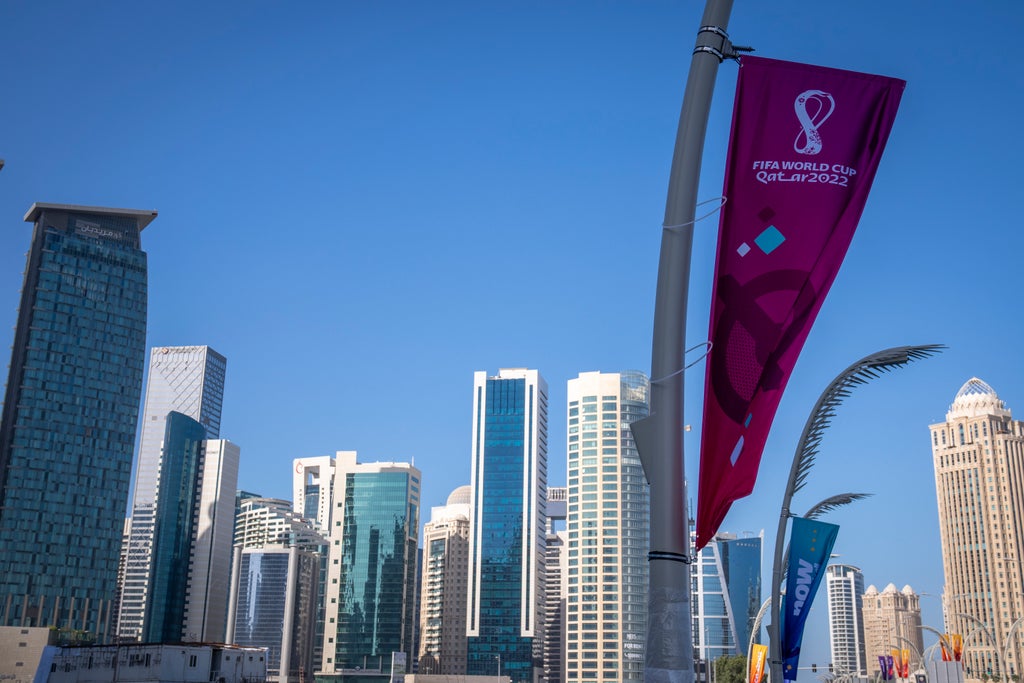
A dozen years of defending Qatar's suitability to host the World Cup can leave Hassan Al-Thawadi exasperated at the enduring glare of scrutiny and the accusatory, rather than celebratory, tone.
At times, Al-Thawadi can seem to be the face — even leader — of this Persian Gulf nation given his prominence. As head of the bid, and now general secretary of the organizing committee, Al-Thawadi has rights groups, protesting football federations and fans worldwide to answer to.
The responses do not always placate those aghast at the suffering of migrant workers whose low-paid labor was relied on to build not only stadiums but also Qatar’s wider infrastructure that is beyond Al-Thawadi’s direct remit.
But it is the changes to working conditions and rights in the nation that Al-Thawadi is trying to accentuate on the eve of the World Cup draw when the finalists discover who and where they will be playing in November.
“Human suffering is a tragedy. Simple as that," Al-Thawadi said in an interview with The Associated Press on Thursday. “We recognized from day one from before we bid to host the World Cup, that things had to change. This is not something that dawned upon us as a result of the World Cup.”
And yet changes to labor laws were not part of the public Qatar bid. They only came in recent years rather than before construction started on the eight new stadiums required after the 2010 vote once groups, including Amnesty International, applied pressure.
“We knew that this World Cup will be an accelerant,” he said, “and will assist the government in terms of making that change.”
They include the introduction of a minimum wage and the dismantling of the “kafala” sponsorship system binding workers to their employer. Enforcement across Qatar is the challenge, especially as investigators hone in on construction sites away from the eight World Cup stadiums that are complete.
Al-Thawadi sees Qatar as setting the “benchmark” — particularly with more restrictive working practices enduring elsewhere in the Gulf — and pointing to how some of the “most ardent of critics” are now working with them.
“Nobody accepts any sort of suffering, and we are doing our bit to ensure that this doesn’t occur,” he said. "I’m working very diligently and we’re very committed that this progress that has been done over the last 12 years will continue after 2022 and will remain.”
But Al-Thawadi went from the interview to the FIFA Congress where Norwegian football federation president Lise Klaveness called out the freedoms and safety denied to workers and the lack of LGBTQ+ protections in Qatar.
Al-Thawadi was riled, claiming in response that Klaveness had not attempted to contact him. It is a sign of how vexed Al-Thawadi can be having to continue justifying Qatar as the Middle East's first World Cup host.
“The World Cup is an opportunity for everybody to come and get to understand different people of different backgrounds with different values," Al-Thawadi said. "We don’t necessarily always ... agree on everything ... but that in itself has to be respected and accepted.
“What we say is what we’re offering them, providing a safe World Cup, a welcoming World Cup for everybody. And this is the opportunity for everybody to sit down and build relations."
Al-Thawadi is hoping people will listen, even if the answers or Qatari laws do not satisfy them.
“People are very quick to pass judgment," he said. “Very quick and very firm in their judgment with that, whether they have the full information or not.”







